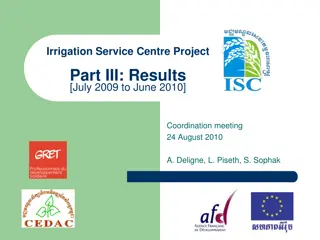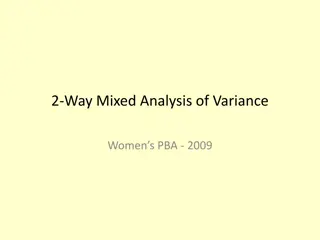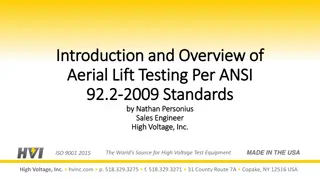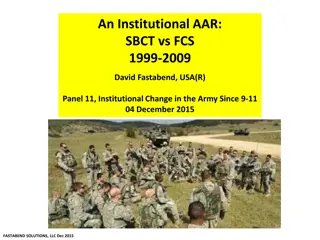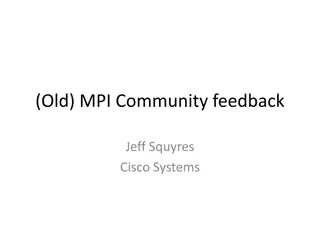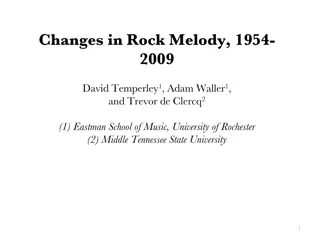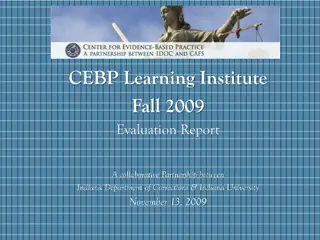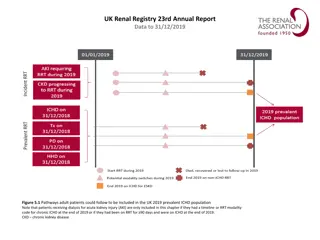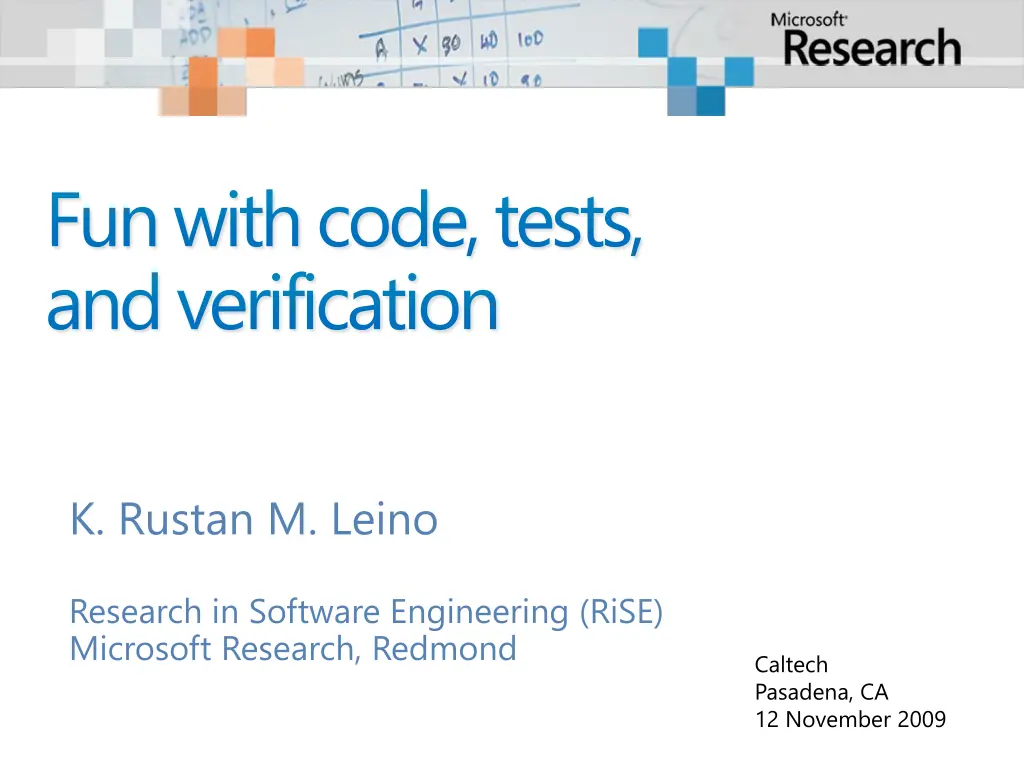
Software Engineering Research and Tools Overview
Exploring software engineering research tools such as static verification, test generation, and program semantics to build, maintain, and understand programs effectively. Examples of tools like SDV, Sage, HAVOC, Pex, and VCC are discussed, along with concepts like Hoare triple and loop invariants.
Download Presentation

Please find below an Image/Link to download the presentation.
The content on the website is provided AS IS for your information and personal use only. It may not be sold, licensed, or shared on other websites without obtaining consent from the author. If you encounter any issues during the download, it is possible that the publisher has removed the file from their server.
You are allowed to download the files provided on this website for personal or commercial use, subject to the condition that they are used lawfully. All files are the property of their respective owners.
The content on the website is provided AS IS for your information and personal use only. It may not be sold, licensed, or shared on other websites without obtaining consent from the author.
E N D
Presentation Transcript
Fun with code, tests, and verification K. Rustan M. Leino Research in Software Engineering (RiSE) Microsoft Research, Redmond Caltech Pasadena, CA 12 November 2009
Software engineering research Goal Better build, maintain, and understand programs How do we do it? Specifications Tools, tools, tools Program semantics Verification-condition generation, symbolic execution, model checking, abstract interpretation, fuzzing, test generation Satisfiability Modulo Theories (SMT)
Some specification/verification tools at Microsoft Static Driver Verifier (SDV) Applied regularly to all Microsoft device drivers of the supported device models, ~300 bugs found Available to third parties in Windows DDK Sage Applied regularly 100s of people doing various kinds of fuzzing HAVOC Has been applied to 100s of KLOC ~40 bugs in resource leaks, lock usage, use-after-free Pex Test generation, uses Code Contracts Applied to various libraries components VCC Being applied to Microsoft Hypervisor
Spec# programming system [Barnett, F hndrich, Leino, M ller, Schulte, Venter, et al.] Research prototype Spec# language C# 2.0 + non-null types + contracts Checking: Static type checking Run-time checking Static verification
Chunker Spec#
Reasoning about programs Hoare triple every terminating execution trace of program S that starts in a state satisfying P does not go wrong, and terminates in a state satisfying Q { P } S { Q } says that
Assignments { } x := E { Q } Q[E/x] Examples: { } x := y { x is even } { } x := x + 1 { x < 100 } { } x := 3*y { x*x + 5*x = 721 } y is even x < 99 9*y*y + 15*y = 721
Loops To prove: find a loop invariant J and prove: invariant holds initially: P J invariant is maintained: { J B } S { J } invariant is strong enough to establish postcondition: J B Q { P } while B do S end { Q }
Cubes Spec#
Chalice [Leino, M ller, Smans] Experimental language with focus on: Shared-memory concurrency Static verification Key features Memory access governed by a model of permissions Sharing via locks with monitor invariants Deadlock checking, dynamic lock re-ordering Channels Other features Classes; Mutual exclusion and readers/writers locks; Fractional permissions;Two-state monitor invariants; Asynchronous method calls; Memory leak checking; Logic predicates and functions; Ghost and prophecy variables
Inc Chalice
Transfer of permissions method Main() { var c := new Counter; call c.Inc(); } method Inc() requiresacc(y) ensuresacc(y) { y := y + 1; }
Shared state What if two threads want write access to the same location? methodA() { y := y + 21; } class Fib { var y: int; method Main() { var c := new Fib; fork c.A(); fork c.B(); } } ? methodB() { y := y + 34; }
Monitors methodA() { acquirethis; y := y + 21; releasethis; } class Fib { var y: int; invariantacc(y); method Main() { var c := new Fib; share c; fork c.A(); fork c.B(); } } methodB() { acquirethis; y := y + 34; releasethis; }
Monitor invariants Like other specifications, can hold both permissions and conditions Example: invariant acc(y) && 0 <= y
Boogie a verification platform [Barnett, Jacobs, Leino, Moskal, R mmer, et al.] C with HAVOC specifications C with VCC specifications Spec# Dafny Chalice Boogie Isabelle/ HOL Simplify Z3 SMT Lib
Encoding object-oriented programs in Boogie Boogie
Specifications: .NET today StringBuilder.Append Method (Char[], Int32, Int32) Appends the string representation of a specified subarray of Unicode characters to the end of this instance. Parameters value A character array. startIndex The starting position in value. charCount The number of characters append. Return Value A reference to this instance after the append operation has occurred. Exceptions public public StringBuilder Append Append(char char[] value, int int startIndex, int int charCount); Exception Type Condition ArgumentNullException value is a null reference, and startIndex and charCount are not zero. ArgumentOutOfRangeException charCount is less than zero. -or- startIndex is less than zero. -or- startIndex + charCount is less than the length of value.
Specifications in Spec# public StringBuilder Append(char[] value, int startIndex, int charCount ); requires value == null ==> startIndex == 0 && charCount == 0; requires 0 <= startIndex; requires 0 <= charCount; requires value != null ==> startIndex + charCount <= value.Length; ensures result == this;
Specifications with Code Contracts [Barnett, F hndrich, Grunkemeyer, Logozzo, et al.] (.NET 4.0) public StringBuilder Append(char[] value, int startIndex, int charCount ) { Contract.Requires(value != null || (startIndex == 0 && charCount == 0)); Contract.Requires(0 <= startIndex); Contract.Requires(0 <= charCount); Contract.Requires(value == null || startIndex + charCount <= value.Length); Contract.Ensures(Contracts.Result<StringBuilder>() == this); // method implementation... } Note that postcondition is declared at top of method body, which is not where it should be executed. A rewriter tool moves these.
TrimSuffix Code Contracts and Pex [Tillman & de Halleux]
Try it for yourself Spec# (open source): http://specsharp.codeplex.com VCC (open source): http://vcc.codeplex.com Boogie, Chalice, Dafny (open source): http://boogie.codeplex.com Code Contracts: http://research.microsoft.com/contracts Pex: http://research.microsoft.com/pex RiSE: http://research.microsoft.com/rise




